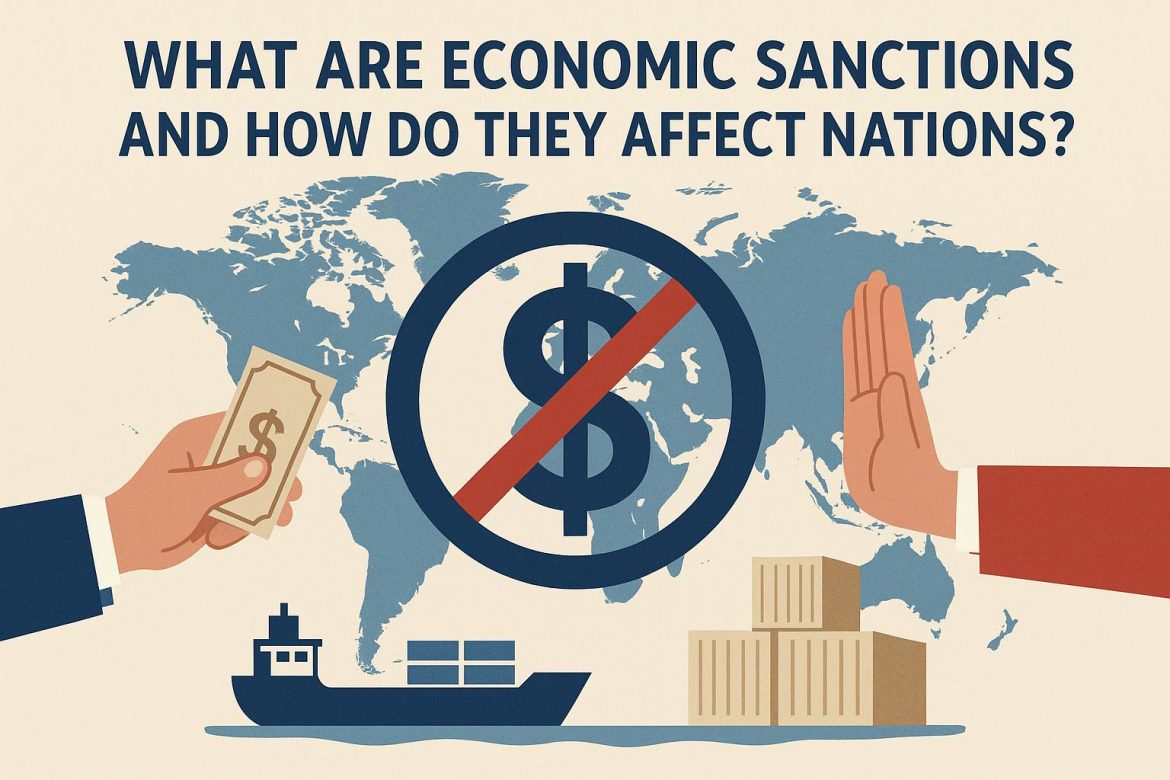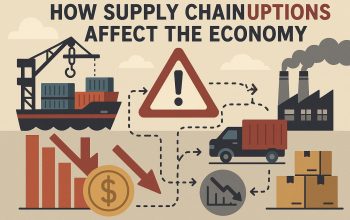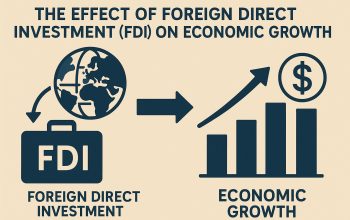Understanding Economic Sanctions: A Comprehensive Overview
The strategic application of economic sanctions is often pursued by countries and international organizations as a means of influencing or altering a nation’s behavior, particularly in cases involving security threats or human rights violations. These sanctions serve not only as a mechanism to enforce diplomatic goals but also as a pivotal tool in shaping international relations and economic landscapes on a global scale. To appreciate the depth and complexity of economic sanctions, it is necessary to delve into their nature, types, and the broad spectrum of their impacts.
What Are Economic Sanctions?
Economic sanctions are restraints imposed on customary trade and financial exchanges for strategic policy reasons. They are used primarily to provoke changes in a nation’s policies or to enforce certain behavioral alterations. Sanctions can be extensive, restricting all commercial activities with a whole country, or they may be narrow, focusing on specific economic sectors, corporations, or individuals. Generally, the objectives pursued by sanctioning bodies include advocating for human rights, safeguarding against nuclear threats, or penalizing hostile actions by states or entities.
Types of Economic Sanctions
Various forms of sanctions are employed to address different strategic needs, including trade embargoes, asset freezes, travel bans, and financial restrictions. These impositions aim not only to limit the operational capacity of governmental institutions or entire economic sectors like oil and finance but also to impact specific figures wielding significant power.
Trade Embargoes
At the forefront of economic sanction types are trade embargoes, which entail halting trade relations with a specified nation. The repercussions are severe as they restrict access to essential goods and services, crucial for maintaining the economic health and growth of the sanctioned country. This isolation can yield a substantial decline in the welfare of the targeted country, which often sees reduced economic output and increased scarcity of critical resources.
Asset Freezes
Another prevalent form of sanctions includes asset freezes, which lock financial resources held in international territories. By obstructing these financial means, asset freezes reduce the economic influence of significant individuals or organizations deemed detrimental to international peace or local governance.
Travel Bans
Travel bans signify another dimension of sanctions that restrict entry for selected individuals into countries enforcing these sanctions. This approach typically targets officials and influential personas linked to objectionable actions or policies, thereby diminishing their global engagement capabilities and networking outreach.
How Economic Sanctions Affect Nations
The imposition of sanctions is intended to exert pressure on targeted countries, prompting policy changes through economic hardship. Yet, this method harbors expansive ramifications, influencing the economic, social, and political fabric of the sanctioned nation far beyond its policy elite.
Economic Impact
From an economic standpoint, sanctions disrupt traditional business operations, sparking a chain reaction of financial distress. Restrictions on trade impede revenue streams and discourage foreign investments, leading to inflation, contracting GDP, and rising unemployment within affected sectors. As domestic industries scramble to adapt to constrained international markets and restricted access to resources, a ripple of financial instability can ensue, affecting public and private sectors alike.
Social Impact
In terms of social impact, economic sanctions often magnify existing societal issues by curtailing access to vital commodities such as food, healthcare products, and other necessary supplies. The strains of affordability and availability usually afflict the broader population, increasing the difficulty of meeting fundamental needs and potentially heightening social unrest and economic disparities.
Political Impact
Politically, the effect of sanctions can be unpredictable, sometimes galvanizing support for the incumbent regime as nationalist sentiments are invoked to maintain power amidst foreign adversity. Conversely, sanctions have the potential to destabilize a government by weakening public trust and facilitating dissent among opposition groups, leading to calls for reform or regime change.
International Relations
On the international stage, sanctions can decisively alter relationships between countries. Targeted nations might seek to forge new alliances or trade partnerships in an effort to mitigate economic losses, thereby reshaping regional or global power structures. Alternatively, some nations may concede to demands, aiming to restore economic channels and rejoin the international community.
Conclusion
While economic sanctions can be a compelling instrument for achieving diplomatic objectives, their enforcement is not without significant risks and consequences. Although the primary intention is to compel government bodies toward compliance or reform, the broad impacts on a nation’s economic, societal, and political spheres necessitate a nuanced application and careful consideration. Crafting sanctions that effectively balance desired outcomes against potential adverse effects is essential for maintaining international peace and economic stability. For further insights into the complexities of economic sanctions and their implications, exploring studies conducted by global economic analyses or reports from international organizations may provide additional depth and perspective.
This article was last updated on: November 26, 2025




